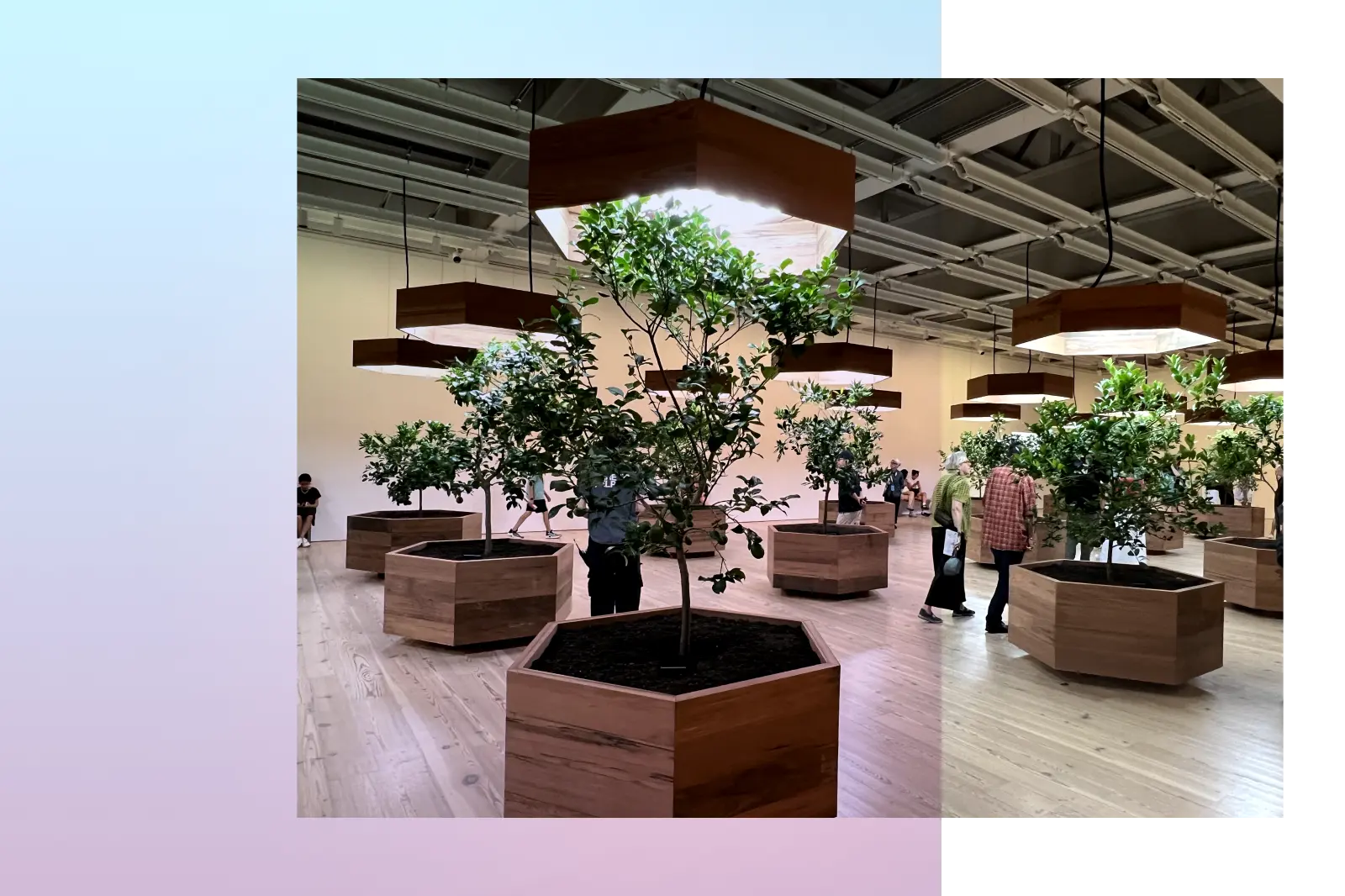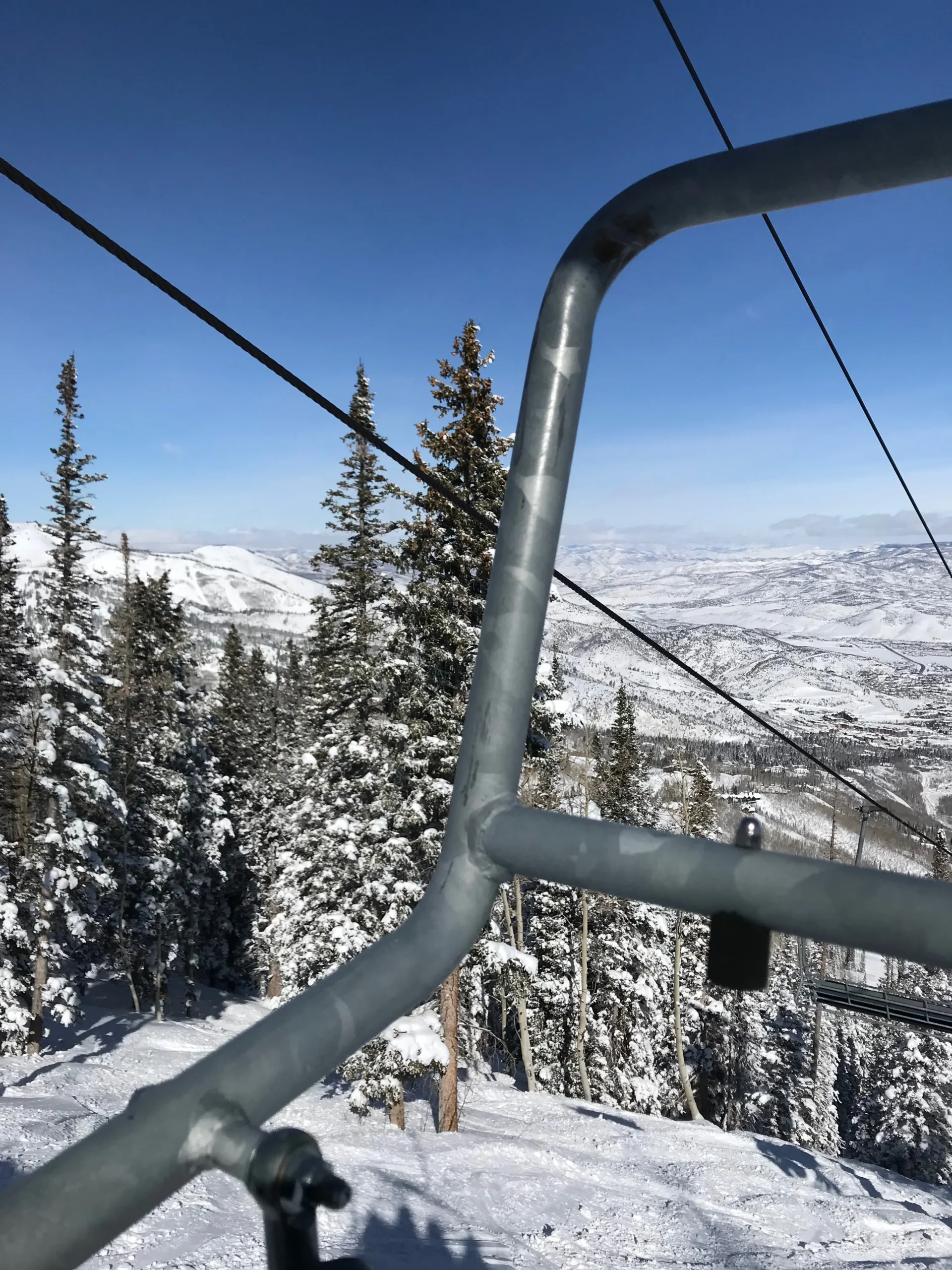Portable Orchard Art, Really, Really Dumb Decisions, A Bright Spot In The UK, and More!

Hey climate heroes! Welcome to The Climate Roundup, where we round up the change, er the news about climate and the environment. As part of the Gen E community, we thank you for making climate action part of everyday life. (Reading this newsletter counts!)
Sign up for The Climate Roundup weekly newsletter here
In Pop Culture:

🍊 Lately I’m finding that whenever I get the urge to go to a museum of any type, there happens to be an environmental exhibit. A sign of the times. At The Whitney Museum of American Art in NYC, the exhibit of note is entitled Survival Piece #5: Portable Orchard. In part inspired by Rachel Carson’s Silent Spring, a book that helped catalyze the environmental movement in America, the Survival Piece series was designed in 1972 by a husband and wife artist collaboration as a statement about our mistreatment of nature and our unsustainable food systems. It still holds, plus it’s a pleasant experience to walk through a grove of citrus trees. And in case you’re wondering, yes, intentional decisions were made about the sourcing of materials to create this exhibit, as well as their reuse and replanting afterwards.
Getting down to climate business:
🌀 Hurricane Beryl broke all kinds of records, indicating that it could be a scary hurricane season, as scientists have predicted. It’s the earliest Category 4 and 5 storm seen in the Atlantic, and it intensified into a hurricane from a tropical storm at the fastest rate ever recorded, aided by hotter than normal ocean temperatures.
🥵 Next up in a long list of climate-smart decisions by the Biden Administration: heat protections for workers. Hotter temperatures are here to stay, and as a reminder, extreme heat kills more Americans than all other weather events combined. Outdoor workers are particularly vulnerable. The proposed regulation would require employers to provide drinking water and allow breaks to cool off when the heat index hits 80.
🙌 Quote of the week: “Anyone who willfully denies the impacts of climate change is condemning the American people to a dangerous future and either is really, really dumb or has some other motive” – Joe Biden. Remember that as you read the next two stories…
👨⚖️ Earlier this year, the Biden Administration paused all new permits for liquified natural gas export facilities so that the Department of Energy could update their approval process to include analyzing the impact of climate change. Last week, a federal judge in Louisiana ordered that permitting must resume, siding with the 16 Republican states that filed the lawsuit, saying it would hurt their economies. So nevermind the fact that carrying on with this fossil fuel will hurt just about everything else on a global scale.
👨⚖️ The Supreme Court overturned the Chevron deference, a 40 year old doctrine that allowed federal agencies and their subject-matter expert staff to interpret how to best implement statutes. The more vague a law was written, the more vulnerable it is now to lawsuits and inaction thanks to this reversal. Many environmental protections are at risk, especially EPA regulations to limit pollution from industry, as businesses will surely fight for the right to pollute in the name of profit. Read expert opinions on what could change here. Thankfully the Inflation Reduction Act (aka our country’s historic climate legislation) was specifically written with the level of detail to bolster it against this very outcome. So at least there’s that.
👍 Results from the recent election in the UK are good for climate as the Green party won more seats, and new prime minister, Keir Starmer, wants to make England a “clean energy superpower”. Godspeed.
🚒 The Amazon rainforest in Brazil has been experiencing its worst duration of wildfires in 20 years.
Some stats
Mach Mehrweg Pool (“Make Reuse Pool”)
Packaging waste is a big problem. It’s polluting everything from our oceans to our organs. One major solution that is taking way too long for consumer goods companies to embrace, is reusable packaging that remains in use as long as physically possible for it to be filled, returned, cleaned, refilled, repeat, forever. Well, at least somebody’s getting it right: Germany. Entire industries in Germany have coordinated to align on reusable packaging for their products, where grocery stores double as collection centers for the empty containers. Read about what’s working and what’s challenging here.



